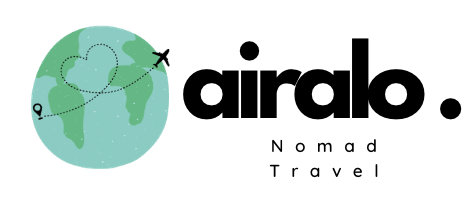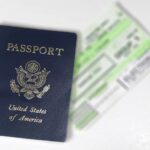
With the rapid growth of digital nomads around the world, many countries have begun to launch specialized visa policies to attract remote workers and entrepreneurs from around the world. The UK is also implementing a new digital nomad visa starting in 2024 to promote the country’s competitiveness in the global wave of remote work. This article will provide an in-depth analysis of the key points of the UK Digital Nomad Visa, including applicable conditions, application process, and advantages for visa holders living and working in the UK.
1. What is the UK Digital Nomad Visa?
The UK Digital Nomad Visa is a visa type designed for foreigners who can work remotely, aiming to attract remote workers, freelancers and digital entrepreneurs from around the world. This visa enables its holders to legally live and work in the UK without having to sign an employment contract directly with a British company. Through this visa, the British government hopes to capitalize on the global remote working trend, attract talents, promote the prosperity of the digital economy, and further consolidate its leadership in global technology and innovation.
Here are detailed instructions for the UK Digital Nomad Visa:
1. Visa target group
The core target group for the UK Digital Nomad Visa is those who are able to work remotely via the internet from any location. Specifically include:
- freelancer: This group of people rely on their own skills to provide remote services to customers around the world. Common freelancers include programmers, designers, copywriters, translators, digital marketing experts, etc. For these professionals, the Digital Nomad visa offers greater flexibility to choose where to work globally and enjoy the UK’s quality of life and creative atmosphere.
- remote company employee: People in this category can provide remote services to their employer from anywhere in the world. While their jobs are largely paid for by companies in other countries, they can take advantage of digital nomad visas to live legally in the UK. As remote working becomes the norm for many multinational companies, more and more remote company employees are becoming potential applicants for digital nomad visas.
- digital entrepreneur: Includes those who make a living by creating and running online businesses, such as e-commerce business owners, software developers, online consultants, educators, and content creators. These entrepreneurs often do not have a fixed office, but work with customers through the Internet to provide various services. For this group of people, the UK Digital Nomad Visa will provide them with a business environment full of opportunities and rich support resources.
2. Core advantages of visa
The Digital Nomad Visa is more than just a work visa, it has several key advantages:
- No local employer support required: Unlike traditional work visas, digital nomad visas do not require applicants to sign a labor contract with a British company. In other words, applicants do not need to find a job in the UK or work for a British company. As long as they can prove that they have stable remote work or sustainable self-employment income, they can obtain a visa.
- Greater work flexibility: The digital nomad visa allows holders to freely choose their work content and location without being restricted by geographical location. Whether in the UK’s largest cities or in remote towns, remote workers can enjoy flexible ways of working.
- Entrepreneurship opportunities: For digital entrepreneurs, the UK provides a favorable entrepreneurial environment, including policies that support innovation, sufficient investment resources and business opportunities that are connected to the global market. The Digital Nomad visa encourages entrepreneurs to establish their own online business in the UK, driving personal and business growth.
3. Core requirements for UK digital nomad visa
In order to ensure that applicants meet the visa conditions, the British government has established several basic requirements for applicants:
- Remote work income requirements: Applicants need to prove that they have a stable source of remote income. Usually, applicants are required to provide proof of income, such as bank statements, tax returns, work contracts or letters of recommendation from employers, etc., to ensure that they can maintain their financial independence in the UK. It is reported that applicants’ monthly income is generally required to be between £2,000 and £3,000, and the specific amount will be adjusted based on the applicant’s family situation and personal financial situation.
- health insurance requirements: In order to protect the health and safety of visa holders during their stay in the UK, applicants are required to provide valid proof of health insurance. The insurance needs to cover medical services in the UK, especially medical expenses in emergencies.
- No bad immigration record: As with all visa applications, Digital Nomad visa applicants must have no record of serious immigration breaches and must ensure that their stay will not place a burden on British society.
4. Visa application process
The process of applying for a UK digital nomad visa is relatively simple, but you still need to prepare sufficient materials and meet specific requirements:
- Apply online: Applicants need to submit an online application through the British government official website. Applicants need to fill in personal information and submit relevant documents such as employment and income certificates, health insurance certificates, etc. The system will evaluate whether the applicant meets the visa requirements based on the applicant’s information.
- Document preparation: Applicants need to submit a series of materials, including but not limited to:
- Proof of personal identity (e.g. passport)
- Income proof documents (such as bank statements, tax forms, work contracts, etc.)
- Proof of health insurance
- No criminal record certificate
- Other relevant supporting documents (such as work projects, contracts, etc.)
- visa fee: Applying for a UK digital nomad visa requires you to pay a certain application fee. The specific fees will vary depending on factors such as visa type, applicant background, etc. In addition, you may also need to pay a health surcharge (Immigration Health Surcharge) to ensure that you can enjoy public medical services while in the UK.
- Waiting for review: After a visa application is submitted, it usually goes through a review process of several weeks. Applicants may receive an interview notification or require further supplementary materials. Once approved, the visa holder can legally live and work in the UK.
5. Living and working conditions of visa holders
- legal residence: People with a UK digital nomad visa can live in the UK for anywhere from 12 months to 2 years. During this period, holders do not need to apply for other work visas, but they need to follow British immigration laws. If the visa expires, the applicant can apply for renewal according to the conditions.
- Freedom to work remotely: Visa holders are not required to work within the UK but can provide services to any global company or client. Whether you are freelancing or running an online business, the UK provides a great place to work.
- social welfare: Digital nomad visa holders usually cannot enjoy all social benefits in the UK (such as unemployment benefits, social security, etc.), but they can enjoy basic medical services. In order to receive additional benefits, visa holders need to meet additional requirements.
6. The long-term impact of the UK digital nomad visa
The UK Digital Nomad Visa will not only provide a legal opportunity to live and work for global remote workers, but will also promote economic and cultural diversity in the UK in the longer term.
- Strengthening the innovation ecosystem: With the influx of more remote workers and digital entrepreneurs, the UK will see more innovative ideas and the growth of new industries, promoting the diversification of its technology and innovation fields.
- Improve global competitiveness: The digital nomad visa helps the UK maintain its position as a global technology hub, attracting top talent from around the world and strengthening its advantage in global competition.
2. Applicable conditions for UK digital nomad visa
Although the specific details of the UK’s digital nomad visa are still being refined, according to the currently known regulations, applicants need to meet a series of conditions. These conditions mainly focus on remote work, proof of income, health insurance, and immigration history. Here is a more detailed explanation:
1. Remote work requirements
One of the core requirements for the UK Digital Nomad Visa is that applicants must have a job or an operating online business that can be carried out completely remotely. Applicants’ work does not need to be directly related to a British company, but must meet the following criteria:
- Nature of remote work: Suitable for freelancers, remote employees, digital entrepreneurs and other groups. Whether you work remotely for an overseas company or run your own online business, you can apply for this visa. Job content may include software development, design, marketing, translation, consulting, writing, content creation, etc.
- clear source of income: Applicants need to prove that they have a stable and sustainable source of income. This means that the applicant’s job or business must be able to bring in a steady income, and this income should be able to cover their living expenses in the UK.
- Work and location flexibility: The visa allows applicants to work freely around the world, but the requirement is to work remotely regardless of location. This provides great convenience for those who already work around the world or plan to become digital nomads. It is important that the applicant’s employment is not limited to a fixed office or geographical location.
2. Income requirements
Income requirements are one of the important conditions for the Digital Nomad visa and are designed to ensure that applicants have the ability to be self-sufficient while in the UK. The specific requirements are as follows:
- Stable monthly income: Applicants must be able to prove that they have sufficient income to support their living expenses in the UK. While income requirements may vary depending on individual family circumstances, generally applicants will need to demonstrate a stable income of at least £2,000 to £3,000 per month over the past few months. This is to ensure that applicants can independently maintain a basic standard of living without relying on UK benefits.
- Proof of source of income: Applicants are required to submit clear financial documentation, usually including bank statements, tax documents, work contracts, payment vouchers or employer references. The purpose of this is to prove that the applicant has sufficient ability to pay for living expenses while in the UK, including accommodation, food, transportation, etc.
- Flexibility and work formats: For the Digital Nomad visa, the form of proof of income is flexible. For example, income can come from freelance work, employment with a remote company, or a self-employed online business. Whether you’re billed by the hour or by project or contract, it can be an effective source of income. The UK government does not require applicants to have a traditional full-time employment contract, but applicants will need to be able to provide clear evidence of continuity and stability of income.
3. Health insurance
The UK’s digital nomad visa requires applicants to provide proof of appropriate health insurance when applying. The specific requirements are as follows:
- Valid health insurance coverage: Applicants must provide health insurance that covers any medical expenses they may incur during their stay in the UK. The UK’s public health system (NHS) mainly serves long-term residents and people with work visas. Therefore, digital nomad visa holders usually need to purchase private health insurance to ensure their medical security while in the UK.
- Medical insurance coverage: Health insurance needs to cover emergency medical services, hospitalization, routine examinations and emergencies during your stay in the UK. Applicants can choose international medical insurance to ensure global coverage.
- Choose the right insurance provider: According to visa requirements, applicants need to choose an insurance company that can provide them with effective insurance, and the insurance should remain valid throughout the entire period of stay. If you choose to use international health insurance, you must ensure that the insurance company can provide services within the UK.
4. No immigration history issues
As with visa applications from most countries, the UK reviews the applicant’s immigration history and requires that he or she has no negative records. The specific requirements are as follows:
- No record of serious immigration violations: Applicants must ensure that they have not breached the immigration laws of the UK or other countries. Any record involving illegal stay, work violations or refusal of entry may result in the visa application being refused.
- No record of social charges: The applicant cannot become a burden on British society, that is, he cannot rely on social welfare or public resources. Therefore, applicants must be able to demonstrate that they have sufficient financial means to live independently while in the UK and are not dependent on UK government support.
- Proof of immigration history: UK Immigration usually requires applicants to provide relevant background check documents, such as criminal record certificates or immigration history reports from other countries. This is to ensure that applicants comply with immigration policy and comply with UK immigration regulations.
5. Additional requirements: language proficiency and adaptability
Although the current visa requirements mainly focus on work, income, insurance and immigration history, there may be more additional conditions in the future, including language ability and adaptability. UK visa policy often requires applicants to have a certain level of English, especially when it comes to work exchanges. While English proficiency is not a requirement, it will be a plus when assessing your visa application, especially for remote workers who need to communicate with UK companies or clients.
3. Application process
The process of applying for a British digital nomad visa is relatively intuitive, but applicants are required to provide detailed supporting materials and ensure that every step of the application process meets the requirements. Here is a more detailed breakdown of the application process:
1. Prepare materials
Before applying for a UK digital nomad visa, applicants need to prepare a series of documents to prove that they meet the visa requirements. Specific materials include but are not limited to:
- Work certification materials: Applicants must prove that they are engaged in remote work or self-employed business. These materials can include:
- work contract: If you are a remote employee, you need to provide a work contract from the employer, clearly stating the terms and job responsibilities for remote work.
- income slip: Provide income slips or bank statements from the past few months to demonstrate the stability and sources of income. For freelancers, you can also provide client contracts, invoices or payment records, etc.
- tax certificate: You can provide tax returns or other relevant documents from the past few months to prove that you have stable income and pay taxes on time.
- Proof of health insurance: Applicants need to prove that they have adequate health insurance to cover their medical expenses while in the UK. Proof of insurance should include:
- Insurance company documents: A formal policy or statement from an insurance company stating the scope of coverage, the period of validity of the policy, and the services it covers.
- Proof of international medical insurance: If you choose international insurance, the certification should indicate that the insurance is valid in the UK and covers emergency medical treatment, hospitalization and routine medical treatment.
- No criminal record certificate: In order to ensure that applicants do not have a bad immigration record, the UK requires applicants to provide proof of no criminal record, usually from all countries or regions where the applicant has lived. This is part of ensuring that applicants comply with immigration regulations.
2. Apply online
The application process for the UK Digital Nomad Visa is conducted entirely through the online system. The specific steps are as follows:
- create Account: Applicants first need to visit the official website of the British government and create an account. Applicants need to provide basic personal information, including name, date of birth, nationality, contact information, etc.
- Fill out the application form: After logging in, applicants need to fill in a detailed application form, which includes:
- Personal background information: Such as name, address, contact information, occupation, etc.
- Job details: Include the specific nature of the remote work, employer information (if applicable), job content, source of income and expected length of stay in the UK, etc.
- Proof of funds information: Applicants need to provide the source of income proof, income level and how to prove that they have sufficient financial support in the form.
- Upload materials: All supporting documents (such as contracts, income slips, health insurance certificates, criminal record certificates, etc.) need to be uploaded to the online system. The system usually requires applicants to upload PDF format or scanned copies to ensure the completeness and readability of the documents.
- Confirm information: After filling out and uploading all materials, applicants need to carefully check personal information and submitted documents. Any inaccurate or missing materials may result in the application being delayed or rejected.
3. Pay the fee
After submitting the application, the applicant needs to pay a certain application fee. The specific amount of the fee will vary depending on the visa type and application time. Fees typically include:
- Visa application fee: This is the base fee and is used for application processing and visa approval. The amount of the fee may vary depending on the specific nature and validity of the visa. For example, short-term visas usually cost less, while long-term visas or visas with add-ons may cost more.
- health insurance surcharge: In order to cover medical expenses while in the UK, applicants usually need to pay the Health Insurance Surcharge (Immigration Health Surcharge, IHS). This fee is mandatory and ensures that applicants can benefit from NHS medical services while in the UK. The amount of this fee depends on how long the applicant plans to stay.
- Payment method: Fees can be paid online via credit or debit card. Applicants will receive a confirmation message after payment, confirming that their fees have been successfully paid.
4. Waiting for review
Once the application is submitted and the relevant fees are paid, the applicant will enter the waiting review stage. Typically, this phase can take anywhere from a few weeks to a few months, depending on several factors:
- review time: The visa approval time is usually between 4 and 8 weeks, but it may be longer depending on the individual circumstances of the applicant and peak application periods (such as summer or around holidays). During peak periods, applicants can wait more than two months.
- Additional information requested: In some cases, applicants may need to provide more supplementary materials or explain certain information. This situation usually extends the review time and requires the applicant to provide the requested additional information within a specified time.
- Visa Approval Notification: After passing the review, the applicant will receive a visa approval notice. Notices may be delivered by email, official website notification or postal mail. Applicants will be informed of the visa approval status and specific visa validity period, stay conditions and other information.
5. After visa is approved
When a visa is approved, the applicant will usually receive an electronic visa (e-visa) or visa label, allowing them to enter and remain lawfully in the UK for the duration of the visa. Applicants should leave the country or apply for an extension before the visa expires according to the approved conditions.
4. Rights and obligations of visa holders in the UK
The UK Digital Nomad Visa provides holders with relatively flexible living and working conditions, but it also has some regulations and restrictions. The following is a detailed description of the holder’s main rights and obligations in the UK:
1. Freedom to work
People with a digital nomad visa are free to work remotely, meaning they can provide services to companies or clients located around the world. Specifically:
- remote work: Holders can continue to cooperate with overseas companies or customers to carry out various online work, such as technology development, content creation, design, consulting, etc. The core of remote work is that applicants do not need to go to the company’s location to work in person. As long as they have a stable network connection and the necessary work tools, they can work within the UK.
- No direct employment with UK companies: However, the holder cannot sign a work contract with a company in the UK and cannot directly participate in local employment relationships in the UK market. In other words, they cannot apply for local jobs within the UK, such as retail, catering or other jobs that require a physical presence. This is to avoid visa holders displacing local labor and affecting the British job market.
- Choices for Freelancers and Entrepreneurs: If the holder is a freelancer or business owner, they can run their own company or conduct an autonomous business in the UK. As long as its customers or business partners are located overseas and the source of income is not dependent on the UK domestic market, it will not violate the visa conditions.
2. Period of residence
The UK’s digital nomad visa usually provides a relatively short period of residence, ranging from 12 months to 2 years, depending on the applicant’s circumstances and changes in visa policies. Holders can apply for renewal before the visa expires, but there are certain conditions and procedural requirements for the renewal process:
- First visa period: When first applying, the visa is usually valid for 12 months. This period of time is sufficient for applicants to live in the UK and verify their feasibility of working remotely.
- Renewal conditions: Renewal usually requires applicants to prove that they still meet the work and income requirements during the first visa period and have not violated visa conditions. When renewing, applicants may need to submit new proof of income, work contracts or other relevant materials. In addition, renewal procedures and requirements may be adjusted as the policy is updated.
- What happens after the visa expires: If the holder wants to continue to work and live in the UK, he must apply for renewal before the visa expires, or choose to leave the UK and go to other countries. Failure to apply for renewal in time may affect the outcome of subsequent applications and even lead to the loss of legal residence status in the UK.
3. Accompanied by family members
In some cases, digital nomad visa holders can apply for a family accompanying visa, allowing a spouse and children to join the applicant in the UK. Specific requirements include:
- Definition of family members: Accompanying visa is usually applicable to the applicant’s spouse, legal partner and children under the age of 18. Family members need to meet certain income requirements to prove that the applicant has sufficient financial support to bear the living expenses of the family members.
- income requirements: Applicants need to prove that their income is sufficient to support themselves and accompanying family members in the UK. Specific income standards are usually set by the British government based on the number of family members and their cost of living, and usually require monthly income to meet a certain standard. Proof of income can be provided through bank statements, tax returns, or other legal financial documents.
- Validity period of accompanying visa: The accompanying visa is usually valid at the same time as the main applicant’s visa, and the living and working conditions of family members are also subject to corresponding restrictions. The life of the spouse and children in the UK will be similar to that of the main applicant. They can enjoy certain public services in the UK, but they also need to comply with relevant immigration regulations.
4. Social welfare
Applicants holding a digital nomad visa do not have access to all social benefits in the UK, especially those specially established for local residents. But they can still enjoy certain public services, including:
- National Health Service (NHS): Holders can access the UK’s National Health Service (NHS) by paying the Health Insurance Surcharge (IHS). This enables holders to enjoy basic medical coverage in the UK, including emergency treatment, family doctor services, etc.
- Medical insurance requirements: Although you can enjoy basic medical services from the NHS, you must ensure that you have appropriate health insurance, especially after paying IHS, which will ensure that you can access NHS services. It should be noted that after IHS payment, the scope of medical services is still limited, and some special treatments, private clinics or long-term medical services may require additional payment.
- Social welfare restrictions: Holders cannot enjoy the same social welfare benefits as British citizens and permanent residents. For example, they are not eligible for unemployment benefits, housing benefits or other welfare benefits. Such benefits are usually only available to long-term residents or officially employed local residents.
5. Advantages of living in the UK
As a globally renowned work and tourist destination, the UK offers a variety of favorable conditions that attract a large number of digital nomads. Here are some of the top advantages of living as a digital nomad in the UK, exploring in detail aspects such as a modern urban environment, social and career support, language advantages and quality of life.
1. Modern cities and living environment
The UK has some of the most attractive cities in the world, offering not only efficient infrastructure and convenient public transport systems, but also a vibrant culture and diverse lifestyles:
- world famous city: Cities such as London, Manchester, and Edinburgh are considered one of the best cities in the world to work and live. As a global financial center, London attracts a large number of international talents; Manchester has become another popular gathering place for digital nomads due to its rapid development of innovation and technology industries; Edinburgh attracts many innovative companies with its historical culture and academic atmosphere.
- Convenient public transportation: The public transportation system in the UK is particularly developed. London’s subway, train, and bus systems are very complete. Digital nomads can travel easily in the city and enjoy an efficient and convenient transportation experience. Other large cities such as Manchester and Birmingham also offer excellent public transport networks, making daily life and work more efficient.
- living environment: The UK’s urban environment is renowned for its modernity, greenness and safety. Most cities have many parks, recreational areas, and historic landmarks perfect for digital nomads to relax and unwind from their busy schedules. In addition, British architectural style combines ancient and modern, whether it is the skyscrapers in London or the ancient castles in Edinburgh, they all add to the diverse experience of life.
2. Community support and collaboration space
Many cities in the UK have active digital nomad communities and rich networking opportunities to support the development and growth of remote workers:
- Digital nomad social events: The UK has an extensive network of digital nomads and entrepreneurs, especially in major cities such as London, Birmingham, and Manchester. Through regular events, meetups and workshops, digital nomads can meet peers, exchange experiences and build professional relationships. These events not only contribute to individual career development but also promote cross-industry collaboration opportunities.
- Co-working Spaces: There are a large number of coworking spaces across the UK’s major cities, which provide a flexible working environment for remote workers. In London, office spaces from brands such as WeWork, The Office Group (TOG) and Regus are spread across the city, providing flexible desks, conference rooms, high-speed Internet and other facilities to suit digital nomads with different needs. Cities such as Manchester and Birmingham have similar coworking spaces that support entrepreneurs and freelancers to work from anywhere.
- Career Resources and Support: Digital nomads have access to a wealth of professional resources in the UK, including entrepreneurial mentors, investors and industry experts. Many cities have startup incubators and accelerator programs, especially London, which is a global leader in technological innovation in areas such as financial technology and artificial intelligence. Digital nomads can obtain financial support and professional guidance through these programs to help develop their businesses.
3. English environment
As the most widely spoken business language in the world, English provides great career conveniences for digital nomads:
- global business language: In the UK, English is the official language, which enables digital nomads to communicate without barriers in their daily lives and work. For most international companies and organizations, English is the working language, which provides digital nomads with the opportunity to work with global customers and teams, enhancing their competitiveness in the global market.
- Career development opportunities: Living and working in an English-speaking environment helps digital nomads improve their language skills, especially in the business and technology fields, where good English communication skills are an important asset for career advancement and expanding client networks. In addition, digital nomads can further improve their cross-cultural communication skills by communicating with people from different countries, paving the way for their global career development.
- Cultural integration and life convenience: For digital nomads from non-English-speaking countries, moving to the UK also means being able to adapt to an English-dominated social environment more quickly. Whether in the workplace or in daily life, an English-speaking environment can help digital nomads quickly integrate into local communities, schools or social activities, improving the overall quality of life.
4. High-quality education and medical care
As a developed country, the UK also provides high-quality services and resources for digital nomads and their family members in terms of education and medical care:
- education system: The UK has a world-class education system, including some of the world’s top-ranked universities, such as the University of Cambridge and the University of Oxford. For digital nomads with children, the UK education system offers a wealth of educational opportunities for their children. From primary school to university, the British education system emphasizes both academic research and the cultivation of practical abilities. In addition to this, many international schools offer English instruction and are suitable for students from different backgrounds.
- medical insurance: Digital nomads and their family members can access the UK’s National Health Service (NHS) by paying the Insurance Health Surcharge (IHS). The medical services provided by the NHS cover a wide range of needs from routine physical examinations to emergency treatment. When digital nomads enjoy high-quality medical services, they do not have to worry about incurring high medical expenses due to unexpected illness or injury. For some professional treatment or private medical needs, there are also a wealth of private clinics and medical services to choose from.
- public service: In addition to education and medical care, digital nomads can also enjoy other public services in the UK, such as libraries, public transportation, cultural activities, etc. These services provide high-quality life support, allowing digital nomads to enjoy good living conditions while enjoying the convenience of work.
in conclusion
The UK’s Digital Nomad Visa offers a new opportunity for global remote workers, freelancers and digital entrepreneurs to legally live and work in the UK. The introduction of this visa will not only attract highly skilled talent, but also bring innovation and diversity to the British economy. Through flexible work options, relaxed employment requirements and policies that support entrepreneurship, the UK provides an environment full of opportunities for digital nomads.
However, applicants need to meet a series of specific conditions, such as stable remote income, health insurance, and no bad immigration records. These requirements ensure the applicant’s financial independence and security while living in the UK. Although the details of this visa are still being improved, it undoubtedly creates an ideal work-life platform for remote workers.
Overall, the implementation of the British digital nomad visa not only helps the UK further consolidate its position as a global technology and innovation center, but also provides remote workers with an ideal place to support creativity and career development. For digital nomads, this visa is an ideal passport to open the door to the UK and integrate into its innovative ecosystem.





